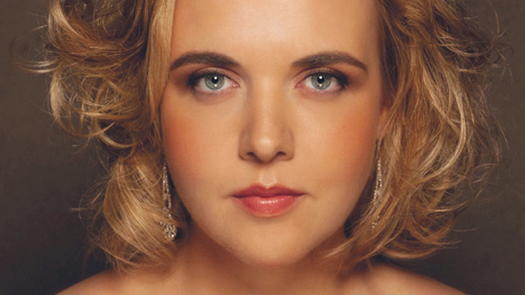 DISCUSSION: John Dante Prevedini leads a discussion about Music and the Visual World, including contributions from Celia Craig, Halida Dinova and Yekaterina Lebedeva.
DISCUSSION: John Dante Prevedini leads a discussion about Music and the Visual World, including contributions from Celia Craig, Halida Dinova and Yekaterina Lebedeva.
Magisterial Creativity
PATRICK MAXWELL visits London
to hear Haydn's 'The Creation'
at the BBC Proms
Whenever studying Haydn's masterful oratorio of Biblical text and Milton's Paradise Lost it is always necessary to recall the words of one audience member at the first public performance in 1799:
In my whole life I will not hear another piece of music as beautiful; and even if it had lasted three hours longer, and even if the stink and sweat bath had been much worse, I would not have minded. For the life of me I would not have believed that human lungs and sheep guts and calf's skin could create such miracles ... I never left a theatre more contented, and all night I dreamt of the creation of the world.
The magisterial creativity that shines through the piece has never lost its appeal throughout the centuries. This Proms concert - 29 July 2019, London UK - was a mass celebration of the piece, and the exuberant performance gave the word vitality a whole new meaning. Under the overall direction of Israeli conductor Omer Meir Wellber, the colossal BBC Proms Youth Choir joined the forces of the BBC Philharmonic and the three soloists for a concert that gained a rapturous reception from the packed Albert Hall.
Amassing such large forces for such a work showed that this performance was much more of a project than a single concert. The choirs involved were the Royal Northern College Chorus, voices from Birmingham and Manchester Universities and the Proms Youth Choir Academy, which made for a huge wave of sound erupting from one corner of the hall. The famous Representation of Chaos was a tentative start, the tempo often more brisk than usual, and the dramatic turmoil did not come through the pithy string section. Wellber's tempo was often unexpected, with swift changes into an impressively motored allegro. The choir did well to keep up through much of the piece, and the evidently well-rehearsed performers were confident throughout.
If the beginning was underwhelming, the piece burst into life when the chorus entered. The tantalising pianissimo was tenderly serene, and the famous moment of light was controlled and dramatic, representing the 'composer's burning eyes' that one diplomat noticed at the original rehearsals.
If the choral forces were capacious, the soloists were a contrast, matching the effortlessly sublime nature of the arias. While the recitatives were spoken, solo pieces were sung with a mix of energy and solemnity. Soprano soloist Sarah-Jane Brandon has a voice that is distinctly operatic, to such a degree that it was at first unwelcome in an oratorio setting.

Sarah-Jane Brandon. Photo © Peter Warren
Tenor Benjamin Hulett and baritone Christoph Pohl were equally authoritative, their sonorous voices both evocative and spirited. The first aria, 'Nun schwanded vor dem heiligen Strahle', or 'Now vanish before the holy beams' to English ears, was particularly colourful. Despite a mysterious oboe moment, the most sublime section that starts with 'By Thee With Bliss' was given appropriate splendour.
With most of the piece sung in the original German, the text was clear, further energising the music. The renditions of 'The marv'llous work beholds amaz'd' and 'The lord is great' were both well controlled, and conductor Wellber on the harpsichord gave the performers free reign, only conducting when necessary, often by comically pretending to play on his instrument. The light-hearted element was shown again when in the last recitative tenor Hulett began to speak in jesting pigeon English to introduce the sumptuous last chorus in the same language.
While he conducted with an admirably unpretentious style, the tempo taken up by Wellber was sometimes overly rapid, and his dramatic dynamics were sometimes not needed. Nevertheless, his gargantuan choir gave a strident performance of the masterful musical writing, along with the secure playing of the orchestra. It gave the piece a new lease of life, producing a majestic representation of this classical masterpiece.
Copyright © 31 July 2019
Patrick Maxwell,
Buckinghamshire UK




